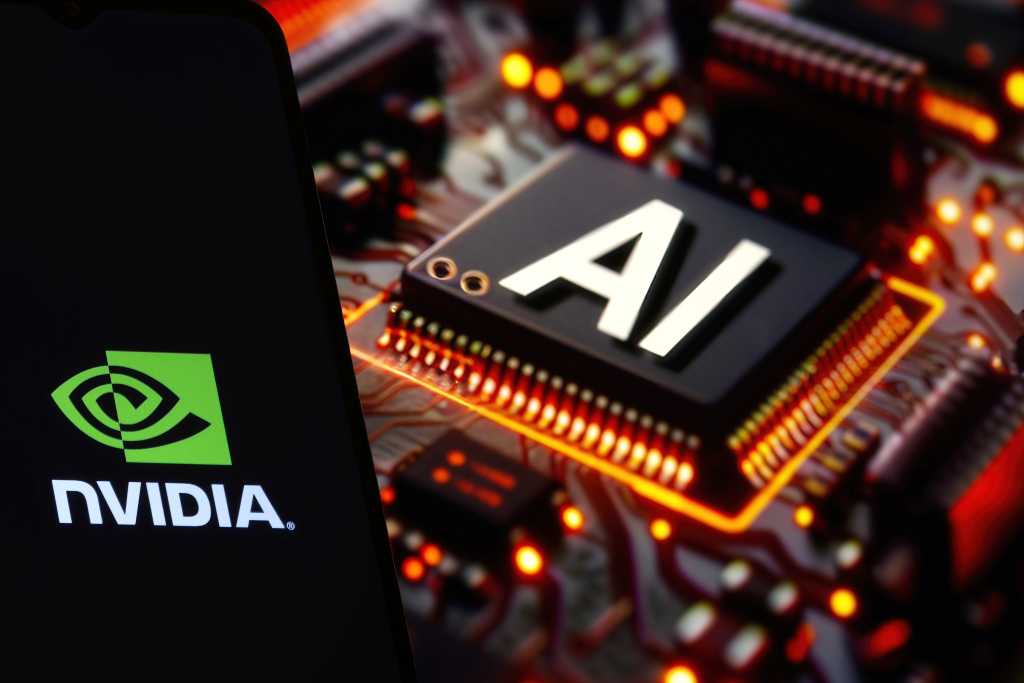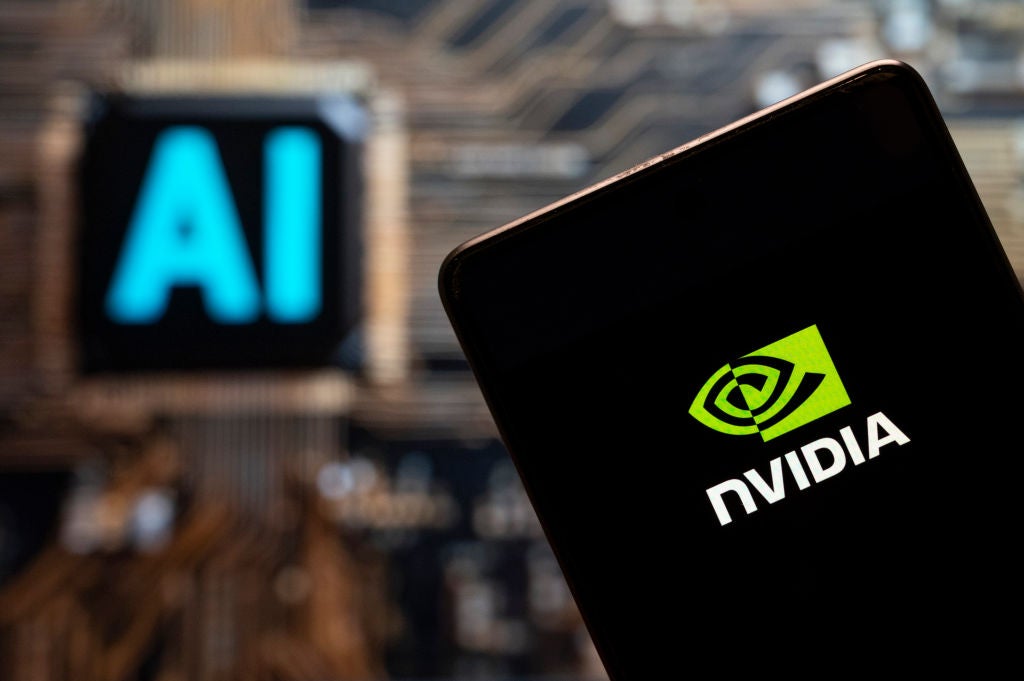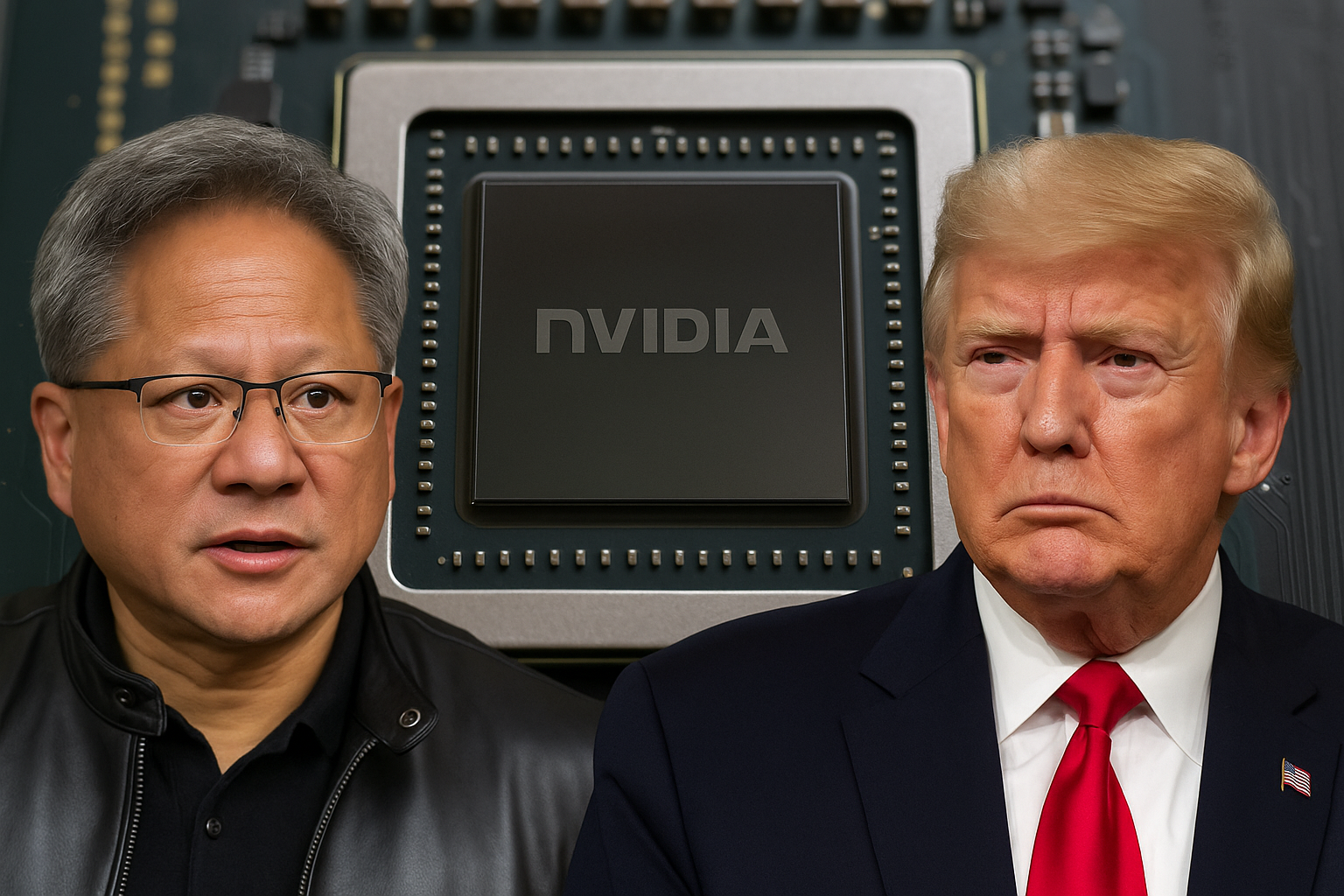In a surprising turn of events, Nvidia has been granted permission to resume sales of its H20 artificial intelligence chip to China, following a high profile meeting between CEO Jensen Huang and former President Donald Trump. The news signals a dramatic reversal of April’s Commerce Department decision, which had blocked the chip’s export over national security concerns. The Nvidia AI chip to China decision now reshapes not only U.S China tech relations but also the global AI economy.
This political and technological shift highlights the intricate dance between geopolitics, business strategy, and innovation. With billions in revenue on the line, Nvidia’s regained access to the Chinese market is more than just a corporate win it’s a geopolitical statement.
From Restrictions to Reconnection The Timeline
Earlier this year, the Biden era Commerce Department, continuing Trump’s tough on China legacy, barred Nvidia from selling its advanced H20 chip to Chinese firms. The decision came amid rising concerns that powerful AI technology could be used for military or surveillance purposes by the Chinese government.
The move shook investors and cost Nvidia an estimated $4 billion in projected revenue for 2025. Chinese clients including Alibaba, Tencent, and Baidu were left scrambling for alternative solutions, with Huawei reportedly racing to fill the gap with its Ascend AI chips.
The Trump Huang Meeting Rewriting the Script
The recent turnaround followed a confidential yet pivotal meeting between Jensen Huang and Donald Trump. While details remain undisclosed, sources close to the discussion say that Trump expressed a willingness to “balance national security and business freedom.”
Trump, known for his strong support of American innovation, reportedly acknowledged Nvidia’s vital role in maintaining U.S. AI supremacy and agreed that cutting off China entirely might backfire economically.
Dr. Carla Reynolds, Stanford AI Policy Lab, “Restricting exports is a double edged sword. While we may limit China’s capabilities in the short term, we risk accelerating their domestic innovation long term,” said Dr. Reynolds. “Allowing controlled sales can keep American companies in the driver’s seat.”

Economic Impact Billions at Stake
Nvidia’s Revenue Recovery
Reinstating sales of the Nvidia AI chip to China could restore up to 25% of Nvidia’s international revenue stream. China accounts for approximately $7 billion of Nvidia’s global business, and a large chunk of that is AI infrastructure.
Alibaba Cloud
Prior to the April ban, Alibaba Cloud had committed to deploying the H20 chips across their next gen data centers in Hangzhou and Shenzhen. The deal was frozen mid phase. With the restrictions lifted, sources confirm that Alibaba has reactivated the order, citing “strategic importance to AI competitiveness.”
Stock Market Reaction
Within hours of the announcement, Nvidia’s stock surged by 7.3%, adding nearly $120 billion to its market cap. The positive sentiment also rippled across other chipmakers like AMD and Broadcom, as optimism returned to U.S. semiconductor exports.
A Tech Cold War Or Controlled Coexistence?
The latest development raises fundamental questions about the U.S China tech rivalry. While outright decoupling was feared, this move suggests a pivot toward controlled coexistence.
Richard Lau, Global Tech Trade Analyst
“This is not a surrender it’s a strategic recalibration. The U.S. wants leverage, not divorce. Letting Nvidia sell under stricter guidelines allows oversight while preserving market dominance.”
This approach also aligns with past models where dual use technologies (civilian and military) were traded under licenses and conditional audits.

Risks and Rewards Balancing Innovation and Security
Despite the celebration, risks remain. Critics argue that AI chips, no matter how limited, can still empower adversarial capabilities.
The Dual Use Dilemma
The H20 chip, while slightly less powerful than Nvidia’s H100, still delivers massive parallel processing capabilities ideal for machine learning, large language models, and even surveillance systems.
The U.S. intelligence community remains cautious. According to an anonymous Pentagon advisor, “Even stripped down AI chips can offer critical leaps for countries with the right software. Monitoring usage is key.”
Personal Perspective Voices from Silicon Valley
Software engineer Mei Zhang, who works at a U.S based AI startup with clients in Asia, shared her nuanced view, “As a Chinese American developer, I see both sides. We don’t want to help authoritarian regimes, but total isolation hurts the people, the developers, and innovation itself.”
Her sentiment echoes many in Silicon Valley who worry that political rigidity could hurt talent collaboration and cross border research.
What’s Next for Nvidia and AI Exports?
Tighter Oversight and Transparent Partnerships
The Trump administration has reportedly requested Nvidia to share detailed usage reports and compliance measures with U.S. regulators. Nvidia has agreed to implement “comprehensive export tracking mechanisms” to ensure chips are used for civilian AI development.

Focus on AI Diplomacy
This episode may prompt broader conversations around AI diplomacy, with nations developing joint agreements on responsible AI development and export policies. The aim is to create a future where innovation is not sacrificed for fear, but guided by ethics and accountability.
A Window of Opportunity
The decision to allow the Nvidia AI chip to China represents a critical inflection point. It’s a moment where business, politics, and technology converge revealing how deeply intertwined these forces are in the age of artificial intelligence.
Nvidia’s restored access not only boosts its financial prospects but also sets a precedent for how global AI trade can navigate political tensions. By embracing oversight rather than isolation, the U.S. may continue to lead the AI revolution on its own terms.
In a world where chips power everything from self driving cars to surveillance networks, who controls the silicon often controls the future. The Nvidia AI chip to China story is far from over, but this latest development shows a path forward where strategic diplomacy may ultimately prove more powerful than blunt restrictions.

1 thought on “Nvidia AI Chip to China: Trump Meeting Reopens $4 Billion Market for H20 Exports”